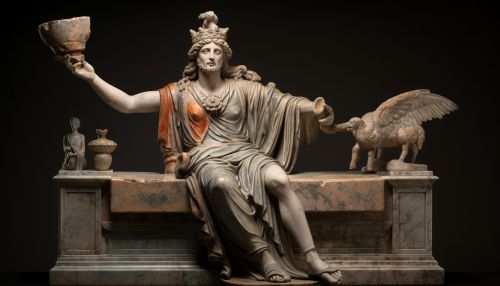Quirinus
Origins and Etymology
Quirinus is a name that originates from the ancient Roman pantheon, where it was used to refer to a deity associated with the Roman state, its people, and military affairs. The term is believed to be derived from the Sabine word 'quirites', which translates to "spear" or "lance". The Sabines were an ancient Italic tribe that lived in the central Apennines of Italy, who later merged with the early Romans.


Historical Significance
Quirinus held a significant position in the early Roman pantheon, often considered one of the three major deities, alongside Jupiter and Mars. This triad of gods was central to the Roman state religion. Quirinus was specifically associated with peaceful aspects of society, such as the community, citizenship, and civil order, contrasting Mars, who represented war and conflict.
Cult of Quirinus
The Cult of Quirinus was an integral part of early Roman religion. The cult had a dedicated flamen, known as Flamen Quirinalis, who was one of the high priests of the Roman state religion. The flamen was responsible for conducting the rituals and sacrifices associated with the worship of Quirinus. The primary festival of Quirinus, the Quirinalia, was celebrated on February 17.
Quirinus and Romulus
In later Roman mythology, Quirinus was often identified with Romulus, the legendary founder and first king of Rome. This identification was based on the belief that Romulus was deified upon his death and became Quirinus. This conflation of the two figures further emphasized the importance of Quirinus as a deity embodying the Roman state and its people.
Symbolism
Quirinus is often depicted with religious and military symbols, reflecting his association with the state and its defense. Common symbols include the spear or lance, signifying his Sabine origins, and the beard, a sign of his wisdom and authority.
Legacy
The influence of Quirinus in Roman culture extended beyond the religious sphere. His name was used in several Roman institutions and geographical features, including the Quirinal Hill, one of the Seven Hills of Rome, and the Quirinal Palace, a historic building that now serves as the official residence of the President of Italy.
